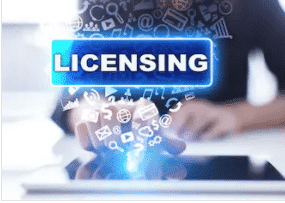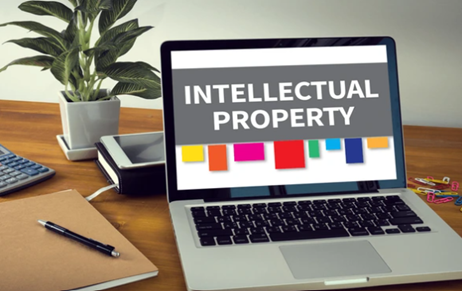The patent law domain features compulsory licenses at their core to bridge invention promotion with…
Patent Licensing In Singapore
Intellectual property rights (IPR) have come to be a crucial asset in improving businesses in today’s global economy. They’re pivotal with regard to the success of small and medium-sized enterprises (SME) by way of providing a safeguard to their innovations and generating income. One such vital source of income is licensing and assignment of IPR, wherein the former is a grant of permission to a third party to exercise the rights of the IP owner, while the latter is a full or partial transfer of ownership itself. Therefore, in case of licensing, the liberties of the licensee are limited in terms of alteration, sub-licensing, transfer, etc., however, it is advantageous to the licensor due to retention of their control over the right in exchange for agreed returns (royalties). Moreover, it increases the chance of achieving the full profit potential of the IP since the consequences of an inaccurate valuation of property is minimized.
It is pertinent to note that the IP regime of Singapore is recognized as one of the best in the world. It was ranked second in the world for IP protection by WEF’s Global Competitiveness Report, 2019; and 14th for ‘idea intensiveness’ by PwC’s Global Economy Watch, 2019. The country is fully compliant with the requirements under the TRIPS Agreement and is a member of various international conventions including the Patent Cooperation Treaty (PCT).
[Image Source: Sutterstock]
The present article aims to shed light on the various aspects of patent licensing in Singapore. These include nature, registration, revocation, implied licensing and exhaustion of rights, compulsory licenses, competition laws, etc.
Oral and Written Contracts
While it is most desirable to have a written license agreement, Singapore, akin to the United Kingdom model, does not require a patent license to be in a written form for it to be legally enforceable. However, for licenses that are not to be performed upon within a year, a written agreement with the required signatures is necessary for its enforcement.
Requirement for Registration
It is pertinent to note that licenses are registrable transactions with respect to registrable IPR and therefore, without such registration, certain rights would be rendered moot due to statutory limitations. Under S.75 of the Patent Act, the transaction for the license, unless recognized as impractical by a court of law, must be registered within six months of such transaction. Failure to comply with the aforementioned legal requirement would impair the licensee’s right to damages and profits in case of any infringement that may occur post-licensing and before application for registration of the license.
Revocation of License
The revocation of a license can only be executed in accordance with the agreed contractual terms and in the absence of any express or implied right of the same, execution of revocation would be deemed to be in breach of contract; damages would be awarded as a common law remedy while the principles of justice, equity and fairness would prevent the revocation itself, which would, therefore, prevent the licensor from treating the licensee as an infringer of the former’s intellectual property right. The aforementioned remedies, however, do not apply in cases of licensing where contractual considerations are absent. In such instances, one may revoke the license at their own will.
A license may also arise by way of an estoppel if the owner led the opposite party to the belief that the legal rights of the owner would not be strictly enforced. In such cases, it may be held that the owner was estopped against denying the presence of a license and therefore, the rights of revocation may arise accordingly.
Implied Licensing, Exhaustion of Rights and Parallel Imports
The doctrine of implied licensing arises from the presumption that a license, with respect to the intellectual property right, is brought into existence upon a patented product’s unconditional sale. This license would provide the purchaser of the product with the rights to use, import/export, maintain, resell, etc., unless the contrary was agreed upon in express terms at the time of sale. This is different from the American approach of exhaustion of rights
whereupon the patent rights of the IP owner comes to an end with the initial sale, leaving the owner with no remedies against their contractual and patent claims.
Parallel imports or ‘grey-market’ goods is the trade practice wherein non-counterfeit, legitimately procured goods are imported without the permission of the owner of the IP. It is pertinent to note that under the patent laws of Singapore, showing that such a product was imported with the permission, conditional or otherwise, of the IP owner would serve as a valid defence against patent infringement claims.
Exclusive Licensing
The Singaporean IP regime allows for exclusive licensing of patents under S. 2(1) of the Act, whereby a license can be granted to the exclusion of others (including the licensor themselves). Such a licensee enjoys rights that are concurrent with the IP owner and therefore, both parties have the same rights and remedies; hence, either of the two parties may, individually or jointly, move the court for action for infringement.
Compulsory Licensing
The IP regime for Singapore provides comprehensive legislation for statutory and compulsory licensing. Under s. 55 of the Act, an application seeking compulsory license may be sought so as to remedy practices of anti-competitiveness provided that there is a market for the patented commodity in Singapore which is not being supplied to within reasonable terms (given that there is no valid reason for the same).
Competition and Anti-Trust Laws
Given the fact that IPR intends to provide an individual right as an incentive for innovation, Singapore also has robust competition and anti-trust legal regimes. This includes curtailment of restrictive licensing that may curb the right of the licensee to contract with a competitor of the licensor as well as technology pools formed with the intention to engage in anti-competitive practices.
Author: Harsshita Pothiraj, a III-year student of B.B.A. LL.B. at University School of Law & Legal Studies (GGSIPU), New Delhi, and intern at Khurana & Khurana, Advocates and IP Attorneys. In case of any queries please contact/write back to us at aishani@khuranaandkhurana.com.




